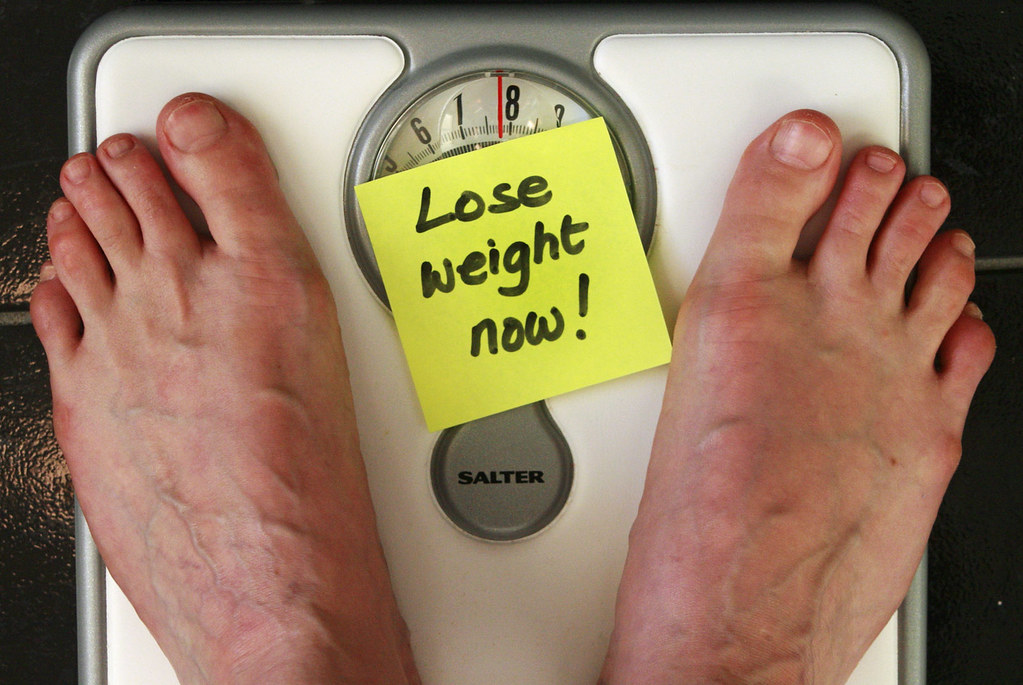The primary goals of behavioral strategies for weight control are to increase physical activity and to reduce caloric intake by altering eating habits (Brownell and Kramer, 1994; Wilson, 1995). A subcategory of behavior modification, environmental management, is discussed in the next section. Behavioral treatment, which was introduced in the 1960s, may be provided to a single individual or to groups of clients. Typically, individuals participate in 12 to 20 weekly sessions that last from 1 to 2 hours each , with a goal of weight loss in the range of 1 to 2 lb/wk .
In the past, behavioral approaches were applied as stand-alone treatments to simply modify eating habits and reduce caloric intake. Your body weight is determined by the amount of energy obtained from your food compared to the amount of energy that your body is using. The surplus energy you take in from food and drink is stored as fat.
To lose weight, the energy you take in from food must be less than the energy you use, in other words eat less and exercise more. Losing 5% of your weight means, for example, losing 5 kg if you weigh 100 kg. A person's weight is associated with a combination of eating habits, access to healthy foods, physical activity, and genetics. The most fundamental factors in losing weight are the number of calories you eat and the number of calories you burn by exercising. Calories are the units used to measure energy in food and drink.
For most people, steady weight loss ( ~ 1 lb/mo) can be achieved if you reduce your intake to 1200 to 1500 calories per day for women and 1500 to 1800 calories per day for men. Multiple easy-to-use calorie counters are available online. Weight loss in individuals who are overweight or obese can reduce health risks, increase fitness, and may delay the onset of diabetes. It could reduce pain and increase movement in people with osteoarthritis of the knee. Weight loss can lead to a reduction in hypertension , however whether this reduces hypertension-related harm is unclear.
Weight loss is achieved by adopting a lifestyle in which fewer calories are consumed than are expended. Depression, stress or boredom may contribute to weight increase, and in these cases, individuals are advised to seek medical help. A 2010 study found that dieters who got a full night's sleep lost more than twice as much fat as sleep-deprived dieters. Though hypothesized that supplementation of vitamin D may help, studies do not support this.
A healthy diet, used in combination with regular exercise, a healthy pattern of sleep and good control of your stress levels, is by far the best way to manage your weight. Since your weight is something affected by multiple factors, only targeting what you eat as a way to lose weight is a strategy that misses the big picture of a healthy lifestyle. As previously mentioned, losing weight and maintaining a healthy weight should come as a natural by-product of an overall healthy lifestyle. It is important to choose a diet that is healthy and that you can stick to.
For most people, eating a balanced low-calorie diet is a safe and proven approach to losing weight that can be followed life-long. Combined with 150 minutes of moderate-intensity physical activity per week, this approach to eating can lead to many other health benefits as well. Set specific diet-related and exercise-related goals and work to achieve them step by step. It is normal to slip back into old eating habits occasionally; the important thing is to return to your weight loss plan after these episodes.
Garlic may leave your breath smelling funky, but don't let that stop you from incorporating it into your diet, especially since it can help you lose weight and keep you healthy. A 2016 study found that garlic powder reduces body weight and fat mass among people with non-alcoholic fatty liver disease . Recent studies have also shown that garlic supports blood-sugar metabolism and helps control lipid levels in the blood. Eating garlic can help boost your immune system, help ward off heart disease, fight inflammation, increase memory retention, and lower blood pressure. Not only is drinking lemon water a healthy, low-calorie alternative to soda or juice, but lemons themselves have also been shown to contribute to weight loss.
Just one of the citrus fruits contains an entire day's worth of vitamin C, a nutrient that has the power to reduce levels of cortisol, a stress hormone that triggers hunger and fat storage. Additionally, lemons also contain polyphenols, which researchers say may ward off fat accumulation and weight gain. Believe it or not, even the peel is beneficial because it is a potent source of pectin—a soluble fiber that's been proven to help people feel fuller for longer. According to a study published in the Journal of the American College of Nutrition, participants who ate just 5 grams of pectin experienced more satiety. Therefore, a regular diet of processed, simple sugars that spike your blood sugar levels can easily lead to weight gain. So it's important for weight management to eat foods that you digest slowly.
Studies show that women often find it more difficult than men to lose weight. That's why there's a wide selection of diet pills on the market that are designed specifically for the female body. In addition to helping you burn fat, the best weight loss pills offer additional health benefits, such as appetite suppression, improved energy levels, and a faster metabolism. There's also evidence that a weight loss counselor could help you trim your waistline. Taking a two-week diet break may aid weight loss, according to a small study involving obese men.
Researchers published the findings in August 2017 in the International Journal of Obesity. Newer research suggests it's easier to overeat processed foods. Think of how long it takes to eat a fast-food sandwich compared to a plate of fish, salad, broccoli and brown rice. They ate more, ate faster, and experienced some changes in their appetite-regulating hormones that can make it harder to feel full. But those same folks lost about two pounds when given the whole foods diet, suggesting that prioritizing whole foods can help you regulate your appetite and weight. But remember that you don't have to buy a book or sign up for a membership to enjoy weight loss benefits.
Many successful dieters find that by making small changes to their meals and boosting daily physical activity they are able to see real results on the scale. To start your own plan, you need to figure out how many calories to eat each day and how many calories to burn. The efficacy of individual interventions is poor, and evidence regarding the efficacy of combinations of strategies is sparse, with results varying from one study to another and with the individual. Recent studies that have focused on identifying and studying individuals who have been successful at weight management have identified some common techniques.
These include self-monitoring, contact with and support from others, regular physical activity, development of problem-solving skills , and relapse-prevention/limitation skills. Several factors may contribute to this seeming contradiction. First, all individuals appear to selectively underestimate their intake of dietary fat and to decrease normal fat intake when asked to record it (Goris et al., 2000; Macdiarmid et al., 1998). If these results reflect the general tendencies of individuals completing dietary surveys, then the amount of fat being consumed by obese and, possibly, nonobese people, is greater than routinely reported. Coupled with these findings is the fact that since the early 1990s, the availability of low-fat and nonfat, but calorie-rich snack foods (e.g., crackers, candy, cookies, cake, frozen desserts) has grown dramatically. However, total energy intake still matters, and overconsumption of these low-fat snacks could as easily lead to weight gain as intake of their high-fat counterparts .
As valuable as exercise is, the existing research literature on overweight individuals indicates that exercise programs alone do not produce significant weight loss in the populations studied. It should be emphasized, however, that a large number of such studies have been conducted with middle-aged Caucasian women leading sedentary lifestyles. The failure of exercise alone to produce significant weight loss may be because the neurochemical mechanisms that regulate eating behavior cause individuals to compensate for the calories expended in exercise by increasing food intake. For example, when physical activity was combined with a reduced-calorie diet and lifestyle change, a weight loss of 7.2 kg was achieved after 6 months to 3 years of follow-up .
Physical activity plus diet produces better results than either diet or physical activity alone (Blair, 1993; Dyer, 1994; Pavlou et al., 1989a, 1989b; Perri et al., 1993). In addition, weight regain is significantly less likely when physical activity is combined with any other weight-reduction regimen (Blair, 1993; Klem et al., 1997). Continued follow-up after weight loss is associated with improved outcome if the activity plan is monitored and modified as part of this follow-up (Kayman et al., 1990). Increased physical activity is an essential component of a comprehensive weight-reduction strategy for overweight adults who are otherwise healthy. The availability of exercise facilities at military bases can reinforce exercise and fitness programs that are necessary to meet the services' physical readiness needs generally, and for weight management specifically.
For a given individual, the intensity, duration, frequency, and type of physical activity will depend on existing medical conditions, degree of previous activity, physical limitations, and individual preferences. Referral for additional professional evaluation may be appropriate, especially for individuals with more than one of the above extenuating factors. The benefits of physical activity (see Table 4-1) are significant and occur even in the absence of weight loss (Blair, 1993; Kesaniemi et al., 2001). It has been shown that one of the benefits, an increase in high-density lipoproteins, can be achieved with a threshold level of aerobic exercise of 10 to 11 hours per month. We hear a lot that a little exercise is the key to weight loss – that taking the stairs instead of the elevator will make a difference, for instance. But in fact it's much more efficient to cut calories, says Samuel Klein, MD at Washington University's School of Medicine.
"Decreasing food intake is much more effective than increasing physical activity to achieve weight loss. If you want to achieve a 300 kcal energy deficit you can run in the park for 3 miles or not eat 2 ounces of potato chips." It's as simple as that. Some studies have borne out this dichotomy, pitting exercise against diet and finding that participants tend to lose more weight by dieting alone than by exercise alone.
In England, almost 7 out of 10 men and 6 out of 10 women are overweight or obese, and a quarter of adults are obese. Being overweight or obese increases your risk of developing serious diseases such as type 2 diabetes, coronary heart disease and some cancers. The risks of developing these diseases increases the more overweight you are. Obesity can also affect your quality of life and lead to psychological problems, such as depression and low self-esteem.
Ideally it is better to avoid becoming overweight by eating healthily and exercising regularly and maintaining this throughout life. But problems with weight gain are common so here is some information to help you lose weight sensibly and healthily. Many successful dieters exercise to lose weight, but adding physical activity can also make you more hungry during the day, increase fatigue, and even cause injury. It's important to start slowly and build a weight loss workout plan for improved health and fitness.
A review of more than 600 studies found that being married, and transitioning into marriage, are both associated with weight gain. Transitioning out of a marriage, however, is associated with weight loss. We're hardly advocating staying single or getting a divorce this research clearly indicates that dieters need to be especially careful around the wedding day. To keep things in check after you take the plunge, meal prep with your partner or develop a workout routine together.
Instead of gobbling down breakfast at home, eat at your desk a few hours later than you typically do. Pushing back your first meal of the day naturally reduces your "eating window"—the number of hours you spend each day grazing. Sticking to a smaller eating window may help you lose weight, even if you eat more food throughout the day, a study published in the journal Cell Metabolism found. What's more, time-restricted eating reduced excessive body weight by 20 percent and prevented further weight gain. Weight loss, in the context of medicine, health, or physical fitness, refers to a reduction of the total body mass, by a mean loss of fluid, body fat , or lean mass .
Weight loss can either occur unintentionally because of malnourishment or an underlying disease, or from a conscious effort to improve an actual or perceived overweight or obese state. "Unexplained" weight loss that is not caused by reduction in calorific intake or exercise is called cachexia and may be a symptom of a serious medical condition. Intentional weight loss is commonly referred to as slimming. Many individuals and companies promote the use of dietary fiber supplements for weight loss and reductions in cardiovascular and cancer risks. Numerous studies, usually short-term and using purified or partially purified dietary fiber, have shown reductions in serum lipids, glucose, or insulin (Jenkins et al., 2000).
Long-term studies have usually not confirmed these findings (LSRO, 1987; Pasman et al., 1997b). Current recommendations suggest that instead of eating dietary fiber supplements, a diet of foods high in whole fruits and vegetables may have favorable effects on cardiovascular and cancer risk factors (Bruce et al., 2000). Self-monitoring of dietary intake and physical activity, which enables the individual to develop a sense of accountability, is one of the cornerstones of behavioral treatment. Additionally, patients may be asked to keep a record of their daily physical activities. Self-monitoring of food intake is often associated with a relatively immediate reduction in food intake and consequent weight loss (Blundell, 2000; Goris et al., 2000).
This reduction in food intake is believed to result from increased awareness of food intake and/or concern about what the dietitian or nutrition therapist will think about the patient's eating behavior. The information obtained from the food diaries also is used to identify personal and environmental factors that contribute to overeating and to select and implement appropriate weight-loss strategies for the individual . The same may be true of physical activity monitoring, although little research has been conducted in this area. Self-monitoring also provides a way for therapists and patients to evaluate which techniques are working and how changes in eating behavior or activity are contributing to weight loss. Recent work has suggested that regular self-monitoring of body weight is a useful adjunct to behavior modification programs .
Evidence shows that genetics plays a role in the etiology of overweight and obesity. However, genetics cannot account for the increase in overweight observed in the U.S. population over the past two decades. Rather, the behavioral and environmental factors that conspire to induce individuals to engage in too little physical activity and eat too much relative to their energy expenditure must take most of the blame. It is these factors that are the target of weight-management strategies. This chapter reviews the efficacy and safety of strategies for weight loss, as well as the combinations of strategies that appear to be associated with successful loss. In addition, the elements of successful weight maintenance also will be reviewed since the difficulty in maintaining weight loss may contribute to the overweight problem.
A brief discussion of public policy measures that may help prevent overweight and assist those who are trying to lose weight or maintain weight loss is also included. The most important component of an effective weight-management program must be the prevention of unwanted weight gain from excess body fat. The military is in a unique position to address prevention from the first day of an individual's military career.
There is significant evidence that losing excess body fat is difficult for most individuals and the risk of regaining lost weight is high. From the first day of initial entry training, an understanding of the fundamental causes of excess weight gain must be communicated to each individual, along with a strategy for maintaining a healthy body weight as a way of life. If your primary health goal is to burn body fat gradually over time, then TrimTone is the best weight loss pill for you.
This weight loss supplement was made to help you lose weight by boosting your metabolism, so it's ideal for women who eat right but still struggle to lose those stubborn pounds. This is not the time to try another detox or strict meal plan that an Instagram influencer is promoting. These are diets in disguise—they work for the short term but not for the long term. Long-term weight loss is about small habit changes you can keep up with over time. Those who are successful at losing weight usually work with health care professionals, usually a doctor, registered dietitian and a therapist.
"I've crash dieted and lost 100 pounds before and I was physically thinner but not at all mentally healthier, so patience and persistence and the ability to fall down and get up over and over again," are key, says Sarah. "Also, if you feel you have an eating disorder, like binge eating, seek help from a counselor that specializes in that." 25 Effective Tips to Lose Belly Fat Sugary foods, processed foods, alcohol, stress, smoking, excess carbohydrates and saturated fats all increase belly fat. Exercise, healthy eating, sleep, self-monitoring, portion control, intermittent fasting, high protein, soluble fiber, vitamin D, hydration and eating flavorful food may all help decrease belly fat. The science behind weight loss is fairly simple when you get down to it.
To gain weight, you take in more calories than you use up; so to lose weight, you must have a calorie deficit, by taking in less calories than you use up. While there are plenty of factors that can affect this, such as stress, sleep and even your genetics, the most obvious factor that most people look to for weight loss, is the food you eat. It doesn't matter what kind of diet you choose, all weight loss programs reduce your caloric intake so that your body burns fat for fuel. To figure out how many calories to cut to lose weight, you need to calculate your daily caloric needs and then reduce that number to create a calorie deficit. You can use a simple online weight loss calculator to figure this out instantly, or you can do a little bit of math to figure your numbers out on your own. According to a study published in Bioscience, Biotechnology, & Biochemistry , consuming apple cider vinegar each day can lead to weight loss, reduced belly fat, waist circumference, and lower blood triglycerides.






























No comments:
Post a Comment
Note: Only a member of this blog may post a comment.